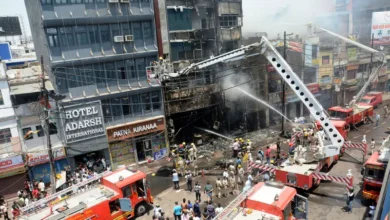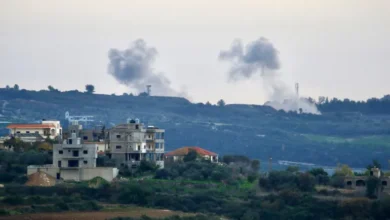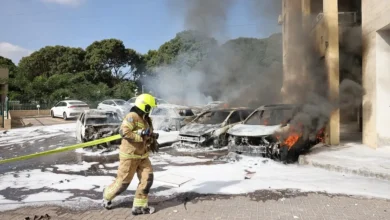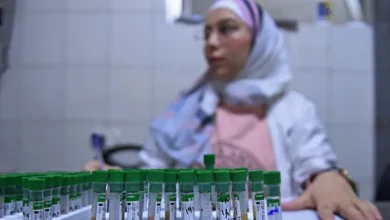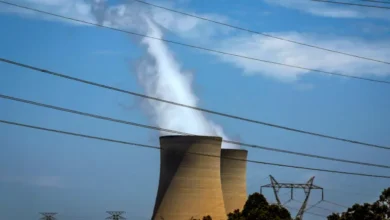Shell pipeline spill fouls farms, river in Nigeria’s Niger Delta
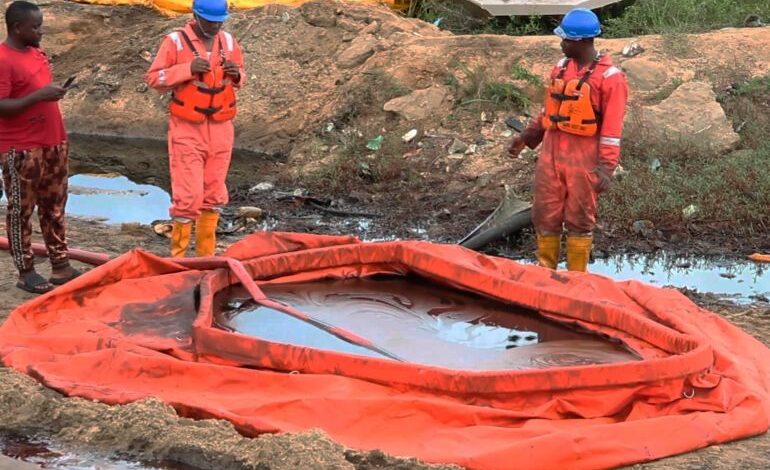
A new oil spill at a Shell facility in Nigeria has contaminated farmland and a river, upending livelihoods in fishing and farming communities in the Niger Delta, which has long endured environmental pollution caused by the oil industry.
The National Oil Spill Detection and Response Agency, or NOSDRA, told The Associated Press that the spill came from the Trans-Niger Pipeline operated by Shell that crosses through communities in the Eleme area of Ogoniland, a region where the London-based energy giant has faced decades-long local pushback for its oil exploration.The volume of oil spilt has not been determined, but activists have published images of polluted farmland and water surfaces blighted by oil sheens and dead fish mired in sticky crude.
While spills are frequent in the region due to vandalism and a lack of maintenance to pipelines, according to the UN Environmental Programme, activists call this a “major one”.
It is “one of the worst in the last 16 years in Ogoniland,” said Fyneface Dumnamene, an environmental activist whose nonproft monitors spills in the Delta region. It began June 11.
“It lasted for over a week, bursts into Okulu River — which adjoins other rivers and ultimately empties into the Atlantic Ocean — and affects several communities and displaces more than 300 fishers,” said Dumnamene of the Youths and Environmental Advocacy Centre.The apparent deadlock stems from mistrust and past grievances in the riverine and oil-abundant Niger Delta region, which is mostly home to minority ethnic groups who accuse the Nigerian government of marginalisation.Africa’s largest economy overwhelmingly depends on the Niger Delta’s oil resources for its earnings, but pollution from that production has denied residents access to clean water, hurt farming and fishing and heightened the risk of violence, activists say.
In 2020 and 2021, NOSDRA recorded a combined total of 822 oil spills, resulting in 28,003 barrels spewing into the environment.The communities “are very angry because of the destruction of their livelihoods resulting from the obsoleteness of Shell’s equipment and are concerned the regulator and Shell will blame sabotage by the residents,” Dumnamene said.
Oil companies often blame aggrieved young people in affected communities for spills, which could allow them to avoid liability.
Shell said it is working with a joint investigatory team, consisting of regulators, Ogoniland residents and local authorities, to identify the cause and impact of the spill.
Shell’s response team “has been activated, subject to safety requirements, to [mobilise] to the site to take actions that may be necessary for the safety of environment, people and equipment,” a company statement said.
NOSDRA confirmed the joint investigation, but the cause of the spill has not yet been revealed.Hundreds of farmers and fishermen who have been cut off from their livelihoods would insist on the restoration of the environment and then compensation, Dumnamene said.
At the request of the Nigerian government, the UN Environment Programme conducted an independent environmental assessment of Ogoniland, releasing a report in 2011 that criticised Shell and the Nigerian government for 50 years of pollution and recommended a comprehensive, billion-dollar cleanup.
While the government announced the cleanup in 2016, there is little evidence of restoration on the ground. The government says community protests and lawsuits by local activists have hampered progress.
”A credible cleanup would have been a beacon of hope for the Niger Delta and other areas in Africa that have suffered oil pollution, but no credible cleanup is ongoing,” said Ledum Mitee, a veteran Ogoni environmental activist and former president of the Movement for the Survival of Ogoni People. “It is a cover-up, and we do not see the impact.”

